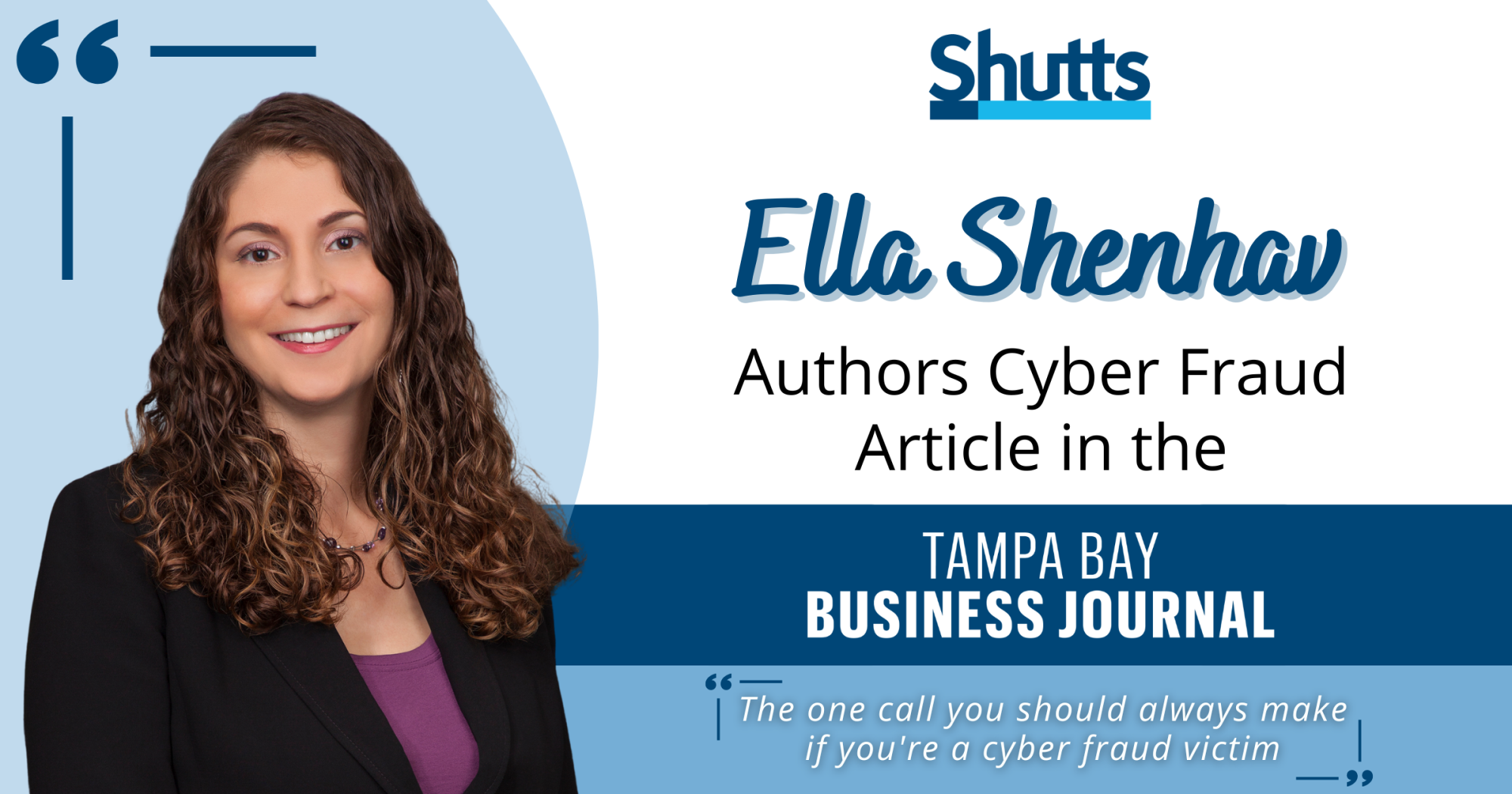
Tampa partner Ella Shenhav recently authored an article in the Tampa Bay Business Journal discussing the first line of defense for victims of fraud related to data protection, privacy and cybersecurity.
According to Ella, there has been an alarming increase in the number of wire fraud transfer cases over the past two years, specifically related to hacked emails and revised wire instructions.
Although the payor and the payee are both victims of cybercriminals in these circumstances, Ella explains that courts consistently hold that a loss in this type of situation should be borne by “the party who was in the best position to prevent the forgery by exercising reasonable care.”
“Cases dealing with this issue are usually fact-intensive and also look at whether the payee — whose email account was hacked — was negligent. However, much more often than not, the party who made the payment without verifying the instructions is made to suffer the loss,” said Ella.
“So before you or your employees make a wire transfer, particularly to a new wire destination that you haven’t used before, always pick up the phone and verify that information. A quick call could save you a lot of money, time and aggravation.”
To read the article in full, click here.
About Ella Shenhav
Ella A. Shenhav is a partner in the Tampa office of Shutts & Bowen LLP, where she is a member of the Business Litigation Practice Group. She is a Certified Information Privacy Professional (CIPP/US), accredited by the International Association of Privacy Professionals (IAPP), and is a Florida Supreme Court Certified Circuit Court Civil Mediator. Ella focuses her practice on complex commercial litigation in state and federal courts, as well as arbitration. She has represented large and small businesses, financial institutions, employers, entrepreneurs and other individuals in successfully resolving, among other matters: business torts; privacy and data protection; contract disputes; employment and non-compete disputes; creditors’ rights; securities litigation; real estate-related litigation; shareholder disputes; and claims of unfair and deceptive trade practices.
